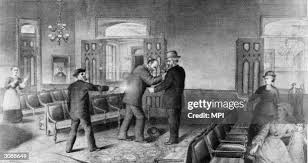
Introduction
Lapu Lapu, a prominent figure in Philippine history, is celebrated for his role in resisting foreign invasion during the Battle of Mactan in 1521. His bravery and leadership have made him a national hero, symbolizing the fight for independence and the spirit of resistance against colonization. With recent events surrounding his legacy gaining renewed interest, it is crucial to recognize Lapu Lapu’s importance in shaping Philippine identity and culture.
Historical Context
The Battle of Mactan took place on April 27, 1521, when Portuguese explorer Ferdinand Magellan led an expedition to the Philippines. Lapu Lapu, the chieftain of Mactan Island, was determined to protect his territory from foreign forces. When Magellan and his men attempted to subdue the islanders, Lapu Lapu and his warriors engaged in a fierce battle, ultimately leading to Magellan’s death. This event marked not just a significant victory for Lapu Lapu but also ignited the spirit of resistance among the Filipino people against colonial powers.
Recent Commemorations
In recent years, there has been a resurgence of interest in Lapu Lapu’s legacy, particularly as the Philippines celebrates significant milestones in its history. In 2021, the country marked the 500th anniversary of the Battle of Mactan with various events and programs. These initiatives aimed to educate the younger generation about the importance of historical figures like Lapu Lapu and promote national pride.
Cultural Impact
Lapu Lapu’s legacy transcends history; it has become embedded in the culture of the Philippines. Statues and monuments honoring him, such as the Lapu-Lapu Shrine in Mactan Island and the Lapu-Lapu City in Cebu, serve as reminders of his valor. Furthermore, he is often featured in educational materials, folklore, and popular media, solidifying his status as an enduring symbol of freedom and resistance.
Conclusion
Lapu Lapu remains a vital part of Filipino identity, representing the unyielding spirit of the populace against external oppression. As the nation continues to grow and evolve, recognizing and understanding historical figures like Lapu Lapu is essential in shaping the collective consciousness and national pride. As events commemorate battles won and lost, they remind us of the sacrifices made for independence, making Lapu Lapu an ever-relevant figure in the continuous narrative of the Philippines.






